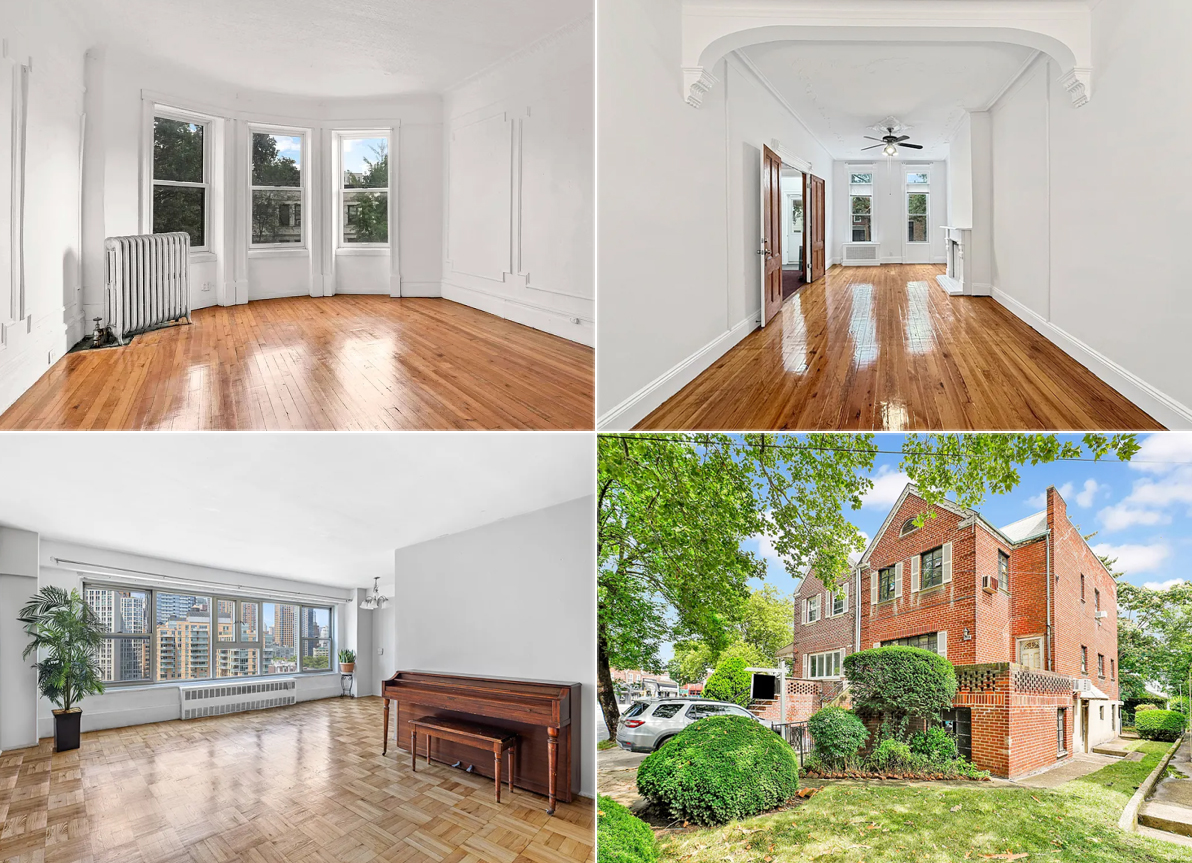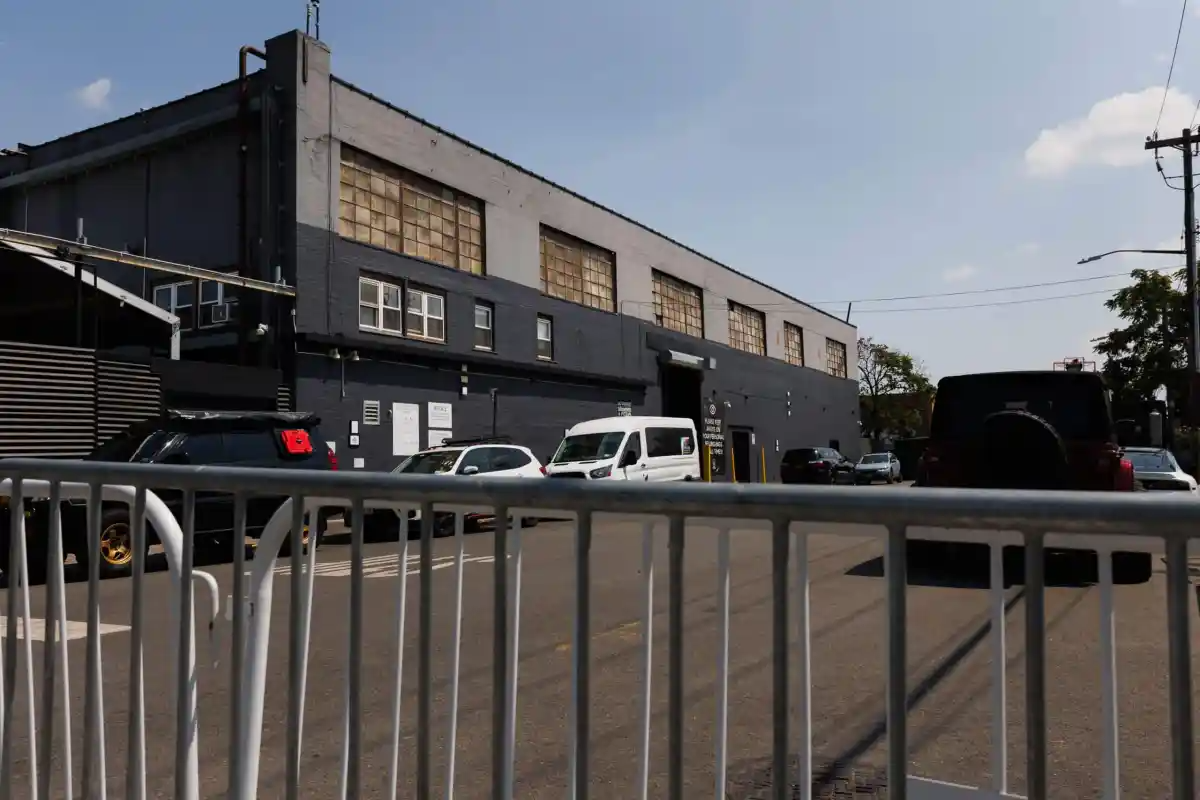W'Burg Builders Sue, Say Rezoning Like Eminent Domain
Rezoning and eminent domain (and landmarking) have been the hottest topics in Brooklyn development over the years, and a group of Williamsburg property owners are saying they’re one in the same. Dozens of property owners affected by last week’s Grand Street rezoning are preparing to sue the city, as detailed in The Real Deal. The…
Rezoning and eminent domain (and landmarking) have been the hottest topics in Brooklyn development over the years, and a group of Williamsburg property owners are saying they’re one in the same. Dozens of property owners affected by last week’s Grand Street rezoning are preparing to sue the city, as detailed in The Real Deal. The owners charge the proposal was ramrodded through the approval process to prevent their participation. One petitioner said eminent domain is almost better. “The government is required to compensate you for the loss at some sort of market rate,” he said. “Whereas in zoning … there’s no requirement for compensation and a very limited requirement for notice.” John Isdith and his father, Carlos, pictured above, are among dozens of small-time developers who, now forced to reduce their project, said they’re considering joining the suit. Do the two have similarities? Which is more unfair—downzoning or eminent domain?
Williamsburg Developers, Homeowners to Sue City [TRD]
Council Green-Lights Grand Street Rezoning [Brownstoner]





These people need to understand that while this downzoning does decrease their property value, it is nothing in comparison to what the 421a change will do to value. That is really the major issue here. The change in height limitation only affects very large lots. The .2 of FAR that is being lost on the smaller lots will have a relatively small impact compared to the 421a change.
This is all that communities can try to do because the city refuses to enforce regulation.
Same with all things in the city:
something is viewed as profitable, more and more people start doing it (people who really don’t have the ability to do it properly), the public starts to suffer, the city steps in with a draconian measure that stifles the industry instead of providing for the proper regulation that they should have from the start.
“it also appears that a lot of the larger developers knew about the proposed downzoning in a few months and were racing against the clock to get all their foundations done and signed off on before that date.”
They didn’t get sufficient notice at all. Regardless, no matter how much advance warning whether 1 week or 1 year, there MUST be a forum in which ALL property owners can participate in the debate. This isn’t a feudal system. There isn’t supposed to be an elite group with a very narrow set of concerns who decides everything for all property owners. And what about renters in the neighborhood hoping to purchase a condo in one of these completed buildings because they can’t afford an entire house? They are part of the community too, with their own set of needs.
“Fairness” is never the issue. The issue in eminent domain cases is whether one’s property is taken without due process of law. Here, there isn’t a taking at all. (There’s no plausible argument that this rezoning would amount to a “regulatory taking,” which would require the restrictions to be so severe that the benefits of property ownserhip are effectievly negated.) It’s true that zoning affects more people than eminent domain, but it doesn’t affect them in any way that the law sufficinetly cares about since no fundamental right is impinged. As long as whatever governmental body approved this followed its rules and can point to a rational basis for its decision (which is an incredibly weak test), any suit would be completely without merit.
Why wouldn’t it be the other way around? Why wouldn’t it be that the anti-height people raced the downzoning in three months to beat the developers pouring the foundations? And if the larger developers “knew” about it, then the smaller ones should have, too. If there are changes being made to your property, especially substantial reductions in the value of your property (to suit someone elses’ taste that lives blocks away), you should be SERVED with notice so you can contest it. It shouldn’t be left up to “through the grapevine” or seeing a notice posted on a website, blog or telephone poll. At least there should be a change in law on that.
I can see both sides of this. I can see homeowners and smaller developers being blind-sided by this and upset by the lack of notice and discussion. But it also appears that a lot of the larger developers knew about the proposed downzoning in a few months and were racing against the clock to get all their foundations done and signed off on before that date. And that cannot be safe at all.
Whether Carlos is going to make any money is irrelevant. That is argumentum ad hominem. I don’t care if you are pro- or anti-development but at least keep the discussion squarely on the issue.
It’s not poured all the way, so he’s not “vested.” He didn’t have time to do it safely with the zoning passing in only three months. And why should it matter if he bought the property 30 years ago? If he took out mortgages to pay for the planning and work that went into the project? How would you like if someone else who has never done your job came into your work and said you should earn less, or even lose money. Do you think they have the right to tell you what “plenty of money” is? You don’t know his financial situation, or that of the other property owners who were affected, you just know that you don’t like tall buildings and that’s more important than someone elses’ livlihood or personal property rights.
From the looks of it, Carlos has a foundation poured and is working on upper stories. So he’s vested.